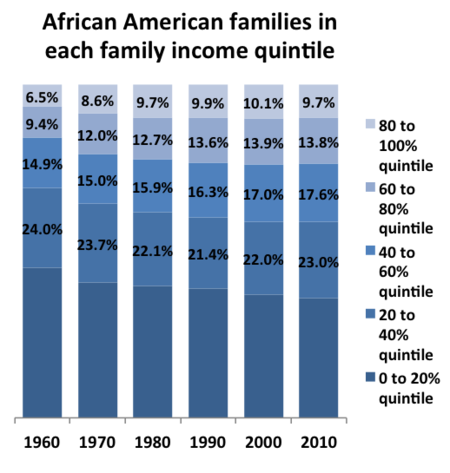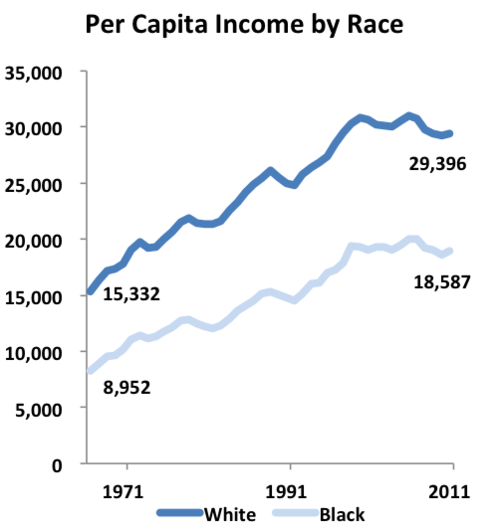Over the next several weeks, to commemorate the 50th anniversary of the March on Washington for Jobs and Freedom, we will delve into some of the most prominent issues facing African Americans both in 1963 and today. Today we start with one of the most distressing areas for the leaders of the March on Washington: the discrepancies in wage and income between African Americans and whites.
Over the last 50 years, African Americans have made some economic progress. Fewer African Americans are in the lower income quintiles and more African Americans occupy the higher income quintiles. Yet, racial inequality remains high with African Americans earning 63 cents for every dollar earned by White Americans.
This chart details African Americans' economic mobility over the past five decades. We've seen a 10 percent jump in African Americans' representation in the middle to upper income classes and a 10 percent decrease in the poorest income class. However, the working class quintile has remained stagnant - - 24 percent of African Americans were in the working class in 1960 compared to 23 percent in 2011.
There has been far less progress in bridging racial income inequalities. In 1971, for every dollar Whites earned, African Americans only earned 58 cents. By 2011, wages only increased 5 cents to where African Americans were earning 63 cents for every dollar earned by White Americans.
If this trend continues, it will be 370 years until the gap is closed and African Americans have an income on par with Whites.
We must remember -- and Dr. Martin Luther King often reinforced -- that the March on Washington was not just for civil rights but a campaign for economic equality. "We call our demonstration a campaign for jobs and income because we feel that the economic question is the most crucial that black people, and poor people generally, are confronting," says Dr. King. Even 50 years later, truer words could not be spoken.
Stay tuned for our next post where we will look at education and graduation rates of African Americans over the past 50 years.


